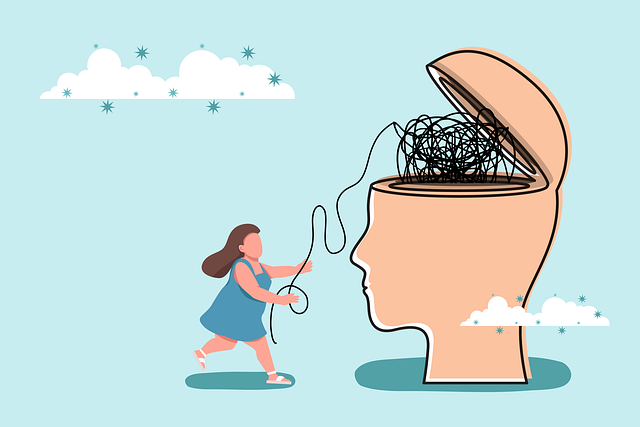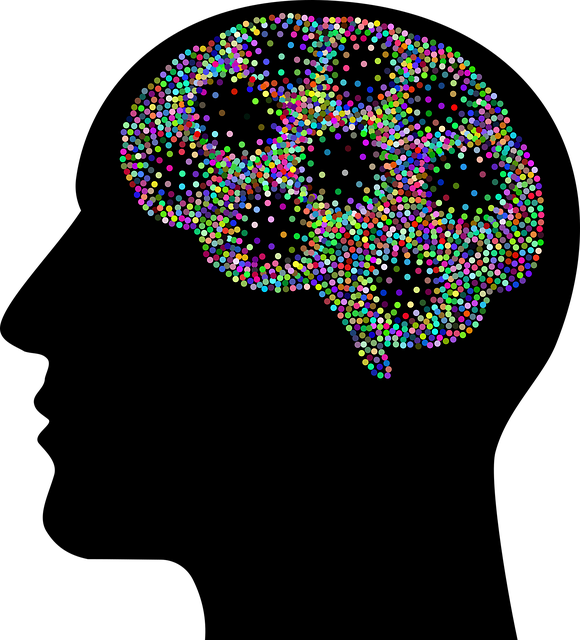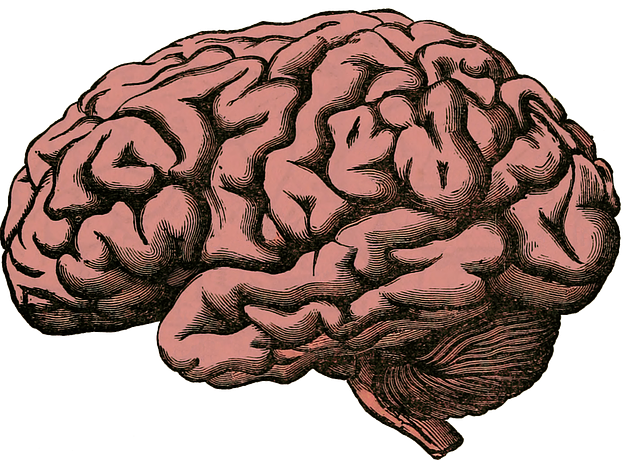Understanding eating disorders in children requires addressing complex biological, psychological, and social factors. Early intervention using targeted therapy like Cognitive Behavioral Therapy (CBT) is crucial, focusing on communication skills, healthy emotion processing, and positive body image to overcome disordered eating patterns. CBT empowers kids with coping strategies for emotional distress, reducing anxiety and depression symptoms. Mindfulness practices, including meditation and deep breathing, aid in mood regulation and emotional balance, enhancing therapy outcomes. Family-based therapies address interpersonal issues within the family unit, improving dynamics and self-esteem through education and structured activities. Lifestyle adjustments like regular exercise and balanced diets support holistic well-being, while mindfulness techniques further improve mental health and mood management for children with eating disorders.
Mood regulation strategies are essential in addressing eating disorders among children. This article explores various therapeutic approaches designed to help young individuals manage their emotions effectively. We delve into Cognitive Behavioral Therapy (CBT), mindfulness practices, family-based therapies, and lifestyle adjustments, all proven to be powerful tools in treating eating disorders and promoting overall well-being. Understanding the link between mood regulation and these disorders is crucial for parents and professionals alike.
- Understanding Mood Regulation and Its Link to Eating Disorders in Children
- Cognitive Behavioral Therapy (CBT): A Powerful Tool for Mood Management
- Mindfulness and Meditation Techniques for Emotional Balance
- Family-Based Therapies: Nurturing a Supportive Environment
- Lifestyle Adjustments for Sustainable Mood Regulation
Understanding Mood Regulation and Its Link to Eating Disorders in Children

Understanding mood regulation is crucial when addressing eating disorders in children. Eating disorders often stem from complex interactions between biological, psychological, and social factors, with mood playing a significant role. Children may use food as a means to cope with emotional distress, leading to unhealthy eating habits and behaviors. For instance, anxiety relief through restrictive eating or binge eating can become a maladaptive coping mechanism.
Early intervention is key to helping children develop effective mood management strategies instead of relying on disordered eating patterns. Therapy for children with eating disorders should focus on improving communication strategies, teaching healthy ways to process and express emotions, and fostering positive body image. By tackling the root causes of emotional distress and providing alternative coping mechanisms, professionals can support children in overcoming their eating disorders and promoting overall mental well-being.
Cognitive Behavioral Therapy (CBT): A Powerful Tool for Mood Management

Cognitive Behavioral Therapy (CBT) is a highly effective approach for managing and regulating moods, especially in children dealing with eating disorders. This therapeutic method focuses on identifying and changing negative thought patterns that can trigger emotional distress and impulsive behaviors. By teaching individuals to recognize and challenge distorted thinking, CBT empowers them to adopt healthier perspectives, fostering better emotional regulation.
Through CBT, children with eating disorders can learn valuable coping strategies for stress management and positive thinking. They are guided to understand the connection between thoughts, feelings, and actions, enabling them to make conscious decisions that promote overall well-being. This therapy has been shown to significantly reduce symptoms of anxiety and depression associated with eating disorders, offering a promising avenue for those seeking to overcome these challenges and develop lifelong emotional resilience.
Mindfulness and Meditation Techniques for Emotional Balance

Mindfulness and meditation practices have emerged as powerful tools for regulating mood and cultivating emotional balance, especially in children navigating challenges like eating disorders. These ancient techniques offer a modern approach to mental health awareness, focusing on the present moment to gain control over one’s emotions. By encouraging self-awareness exercises, mindfulness helps individuals become more attuned to their feelings, thoughts, and bodily sensations, enabling them to respond mindfully rather than reacting impulsively to stress or distress.
Through regular practice, children can learn to observe their emotional landscapes without judgment, fostering a sense of calm and resilience. Meditation techniques, such as deep breathing exercises and guided visualizations, serve as effective stress reduction methods, helping to soothe the mind and body. This proactive approach not only aids in therapy for children with eating disorders but also promotes overall mental well-being, equipping them with valuable skills to navigate life’s challenges with greater equanimity and self-acceptance.
Family-Based Therapies: Nurturing a Supportive Environment

Family-based therapies play a pivotal role in addressing and managing children’s eating disorders, focusing on creating a nurturing and supportive family environment. These therapeutic approaches recognize that eating disorders often stem from complex interpersonal dynamics and low self-esteem within the family unit. By involving parents and siblings in the treatment process, therapists facilitate open communication and educate the family about healthy eating habits and coping skills development.
The goal is to enhance overall family functioning, improve self-esteem improvement, and teach effective mood management techniques. Through structured activities and collaborative problem-solving, families learn to provide emotional support while encouraging healthier behaviors. This approach not only helps in the immediate recovery process but also equips families with long-lasting strategies to navigate potential triggers and maintain a positive, cohesive household environment.
Lifestyle Adjustments for Sustainable Mood Regulation

Maintaining a stable mood is a cornerstone of overall well-being, and lifestyle adjustments play a significant role in sustainable mood regulation. For children struggling with eating disorders, such as anorexia or bulimia, adopting healthy habits can be transformative. This includes regular physical activity, which not only improves cardiovascular health but also boosts serotonin levels, enhancing mood and reducing anxiety. A balanced diet, beyond meeting nutritional needs, is crucial for mental health awareness; it signals to the brain that the body’s needs are being met, fostering a sense of security and stability.
Additionally, mindfulness practices like meditation or deep breathing exercises can be powerful tools in coping skills development. They help individuals become more attuned to their emotions, enabling better management of mood swings. Integrating these practices into daily routines can create a sense of calm and resilience, especially during challenging times. The goal is to cultivate a holistic approach to mental health, where lifestyle adjustments complement any therapy for children eating disorders, fostering a healthier, happier, and more balanced life.
In conclusion, addressing mood regulation is paramount in managing eating disorders among children. By combining evidence-based therapies like Cognitive Behavioral Therapy with practices such as mindfulness and family-centered approaches, a holistic approach to treatment emerges. Lifestyle adjustments play a crucial role in sustaining these improvements over time. For parents and caregivers navigating therapy for children’s eating disorders, understanding and employing these strategies can prove transformative, fostering healthier emotional landscapes and improved overall well-being.











